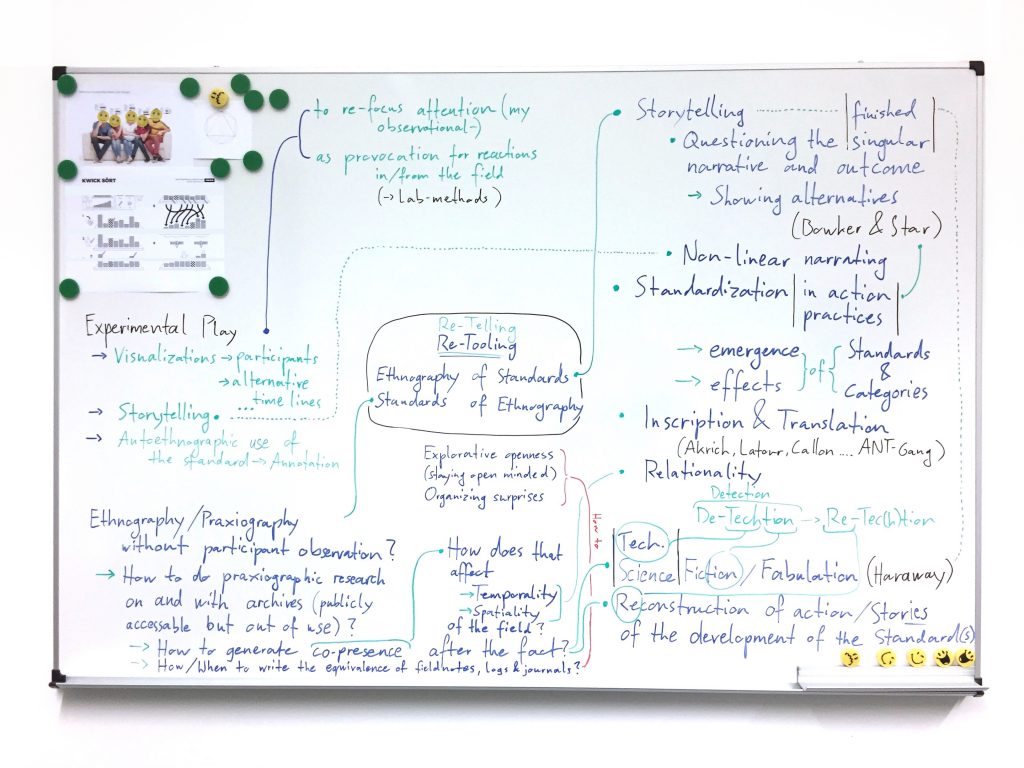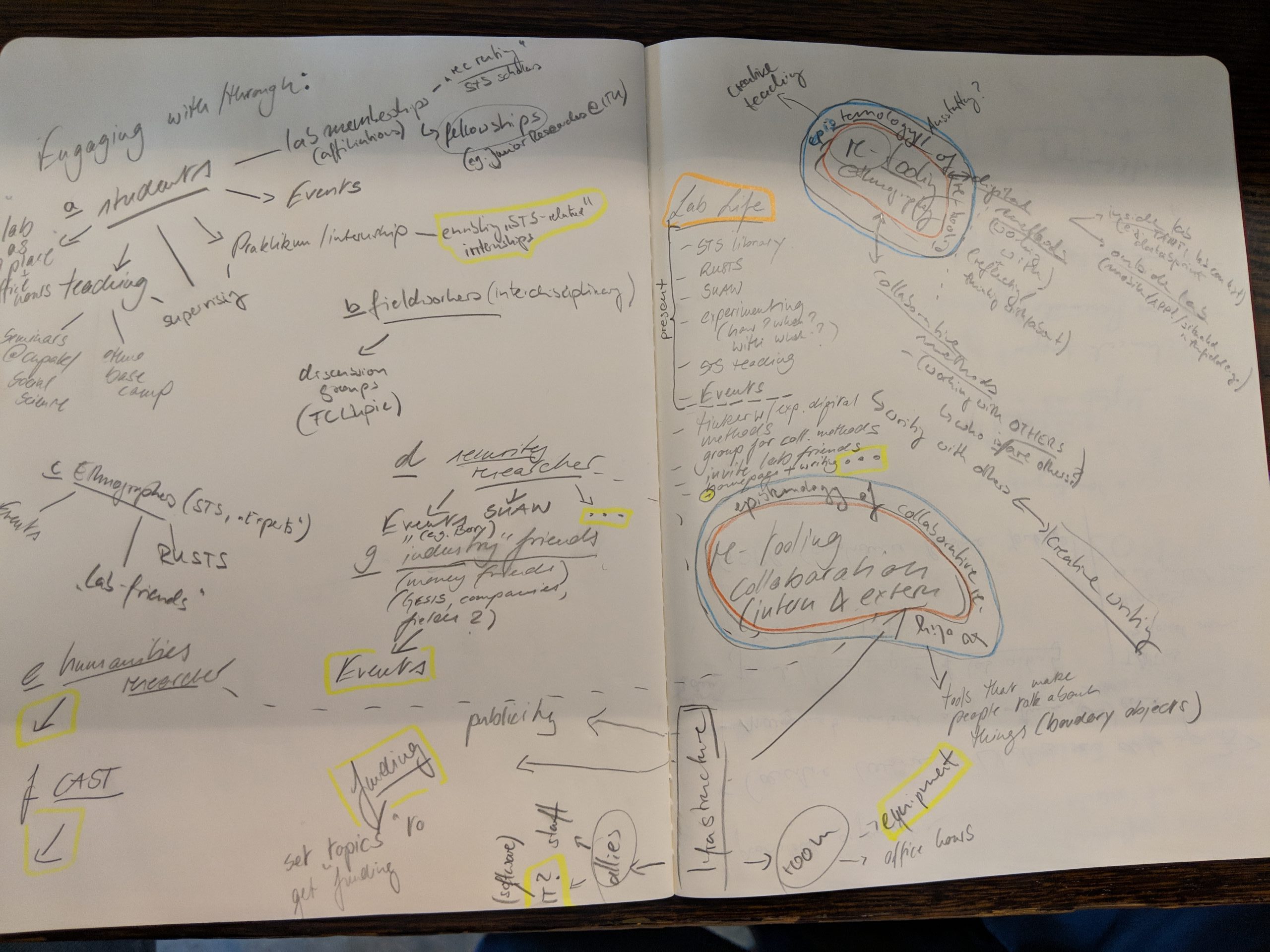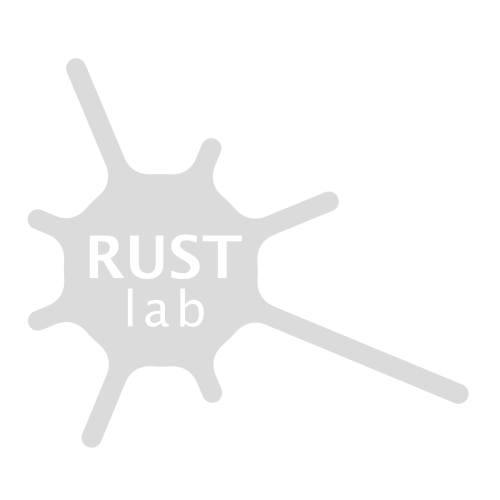What methods are apt for studying technoscientific worlds? RUSTlab experiments with re-tooling social science methods for engaging with changing, distributed and heterogeneous socio-technical worlds. Among the well-known and innovative methods we re-set and mix in-depth observations, digital methods, participation, walkthroughs, story-telling, visualizations, datascapes, mappings, games, scenarios, emic comparisons, object ethnographies, etc.


Data Walk: Craft, analyse and visualise data on digital infrastructure, surveillance, and gender in the city
The Data Walk is a mobile method of collective observation, documentation and discussion. As a research process, it is characterised by the critical and creative collection and documentation of data during a collective stroll, following the ethnographic model (cf. Powel 2021, Kühl 2015, Weber/John 2018). STS researchers (e.g., Vertesi & Ribes 2019) are increasingly drawing attention to how data – digital and analogue – are anything but given. Rather, they must be crafted and curated, and they degrade if not cared for (cf. Sørensen & Kocksch, 2021). Additionally, the Data Walk draws on current STS data research that is concerned with the question of how data can be experienced and how a researched object is transformed through the data pipeline (collection->analysis->visualisation). The Data Walk in Paderborn focuses on the question of how data are constructed and how and what they construct.
Find the full Data Walk description here.
Datastories
The datastories seminar re-sets teaching in the social sciences and applied informatics into an interdisciplinary, practice-oriented and experimental project format. Learning social science is reflected by tinkering with, interpreting and reflecting upon digital data in close co-laboration with Applied Informatics students and issue experts.
Find all student projects with interactive data visualizations here datastories.rub.de
Workspaces
With workspaces we want to explore themes openly, democratically, with the help of experimental setups, while keeping a strong focus on carefully selected themes and a strict timeline. Workspaces thus differ from the more traditional format of a workshop. We are particularly keen on exploring different kinds of knowledges to rethink matters of concern. One example for a successful workspace was our Climate Justice event held in November 2019.
This was an event coordinated and realized with our friends from the Scientists for Future Bochum during the week-long strike by the Students for Future. We invited students and the public to the Lab’s rooms and offered multiple ways to reflect on climate justice.
Let’s have a look into one room. It was designed around the collection, problematisation and visualization of pollution data in and around the Ruhr University. Participants familiarized themselves with the way in which the city collects data, or refrains from doing so. As a result, new formes of data collection appear to be necessary. This is where crowd luftdaten.info.

Python Studies Group
With the Python Study Group at RUSTlab we take part in an open space for everyone who is interested in collectively developing a better understanding of computers, code and programming practices as well as exploring the sociotechnical depth of code and coding with a specific focus on the programming language Python. This is also a practice of co-laboration. We are greatful to our friends at ETHOS LAB (IT University of Copenhagen), who started the initiative, and from whom we learnt a lot.
